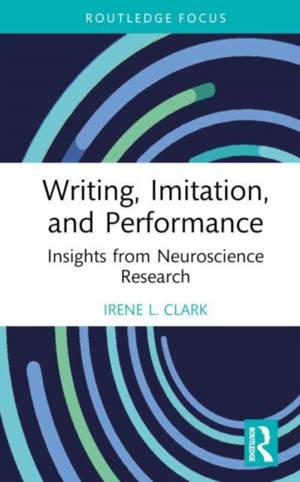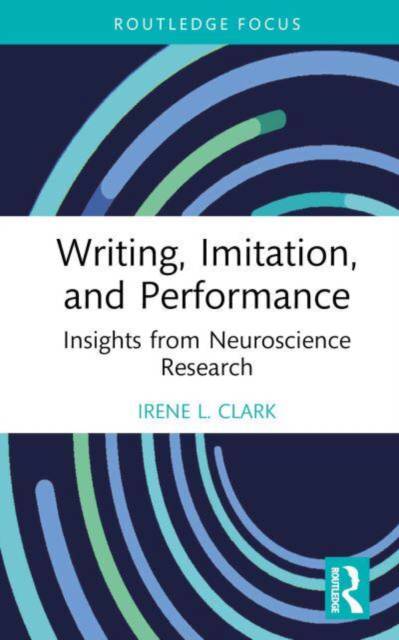
- Retrait gratuit dans votre magasin Club
- 7.000.000 titres dans notre catalogue
- Payer en toute sécurité
- Toujours un magasin près de chez vous
- Retrait gratuit dans votre magasin Club
- 7.000.0000 titres dans notre catalogue
- Payer en toute sécurité
- Toujours un magasin près de chez vous
Description
This book reconsiders imitation as a valuable pedagogical approach in Writing Studies. Countering concerns about product-oriented teaching, formulaic writing, paternalistic or elitist pedagogy, and plagiarism, the book maintains that the use of imitation can offer a writer greater insight and help to develop a clear writerly identity.
Positing that writers often use imitation as a step toward developing new directions, structures, and styles, and that this imitation is indeed a form of performance, the author explores the neuropsychological aspect of imitation to show how it is a valid form of writing instruction. She explains how learning, experience, and role playing are manifested in the brain and influence one's sense of self, one's identity. The book emphasizes that imitation can provide students with opportunities to perform habitually as writers, readers, and critical thinkers, enabling them to develop new understandings and confidence in their ability to improve. It also includes suggestions for classroom application, written by Craig A. Meyer.
This book offers important insights for scholars and teachers of writing and composition, education, and communication studies.
Spécifications
Parties prenantes
- Auteur(s) :
- Editeur:
Contenu
- Nombre de pages :
- 114
- Langue:
- Anglais
- Collection :
Caractéristiques
- EAN:
- 9781032051987
- Date de parution :
- 02-12-22
- Format:
- Livre relié
- Format numérique:
- Genaaid
- Dimensions :
- 138 mm x 216 mm
- Poids :
- 452 g

Les avis
Nous publions uniquement les avis qui respectent les conditions requises. Consultez nos conditions pour les avis.






